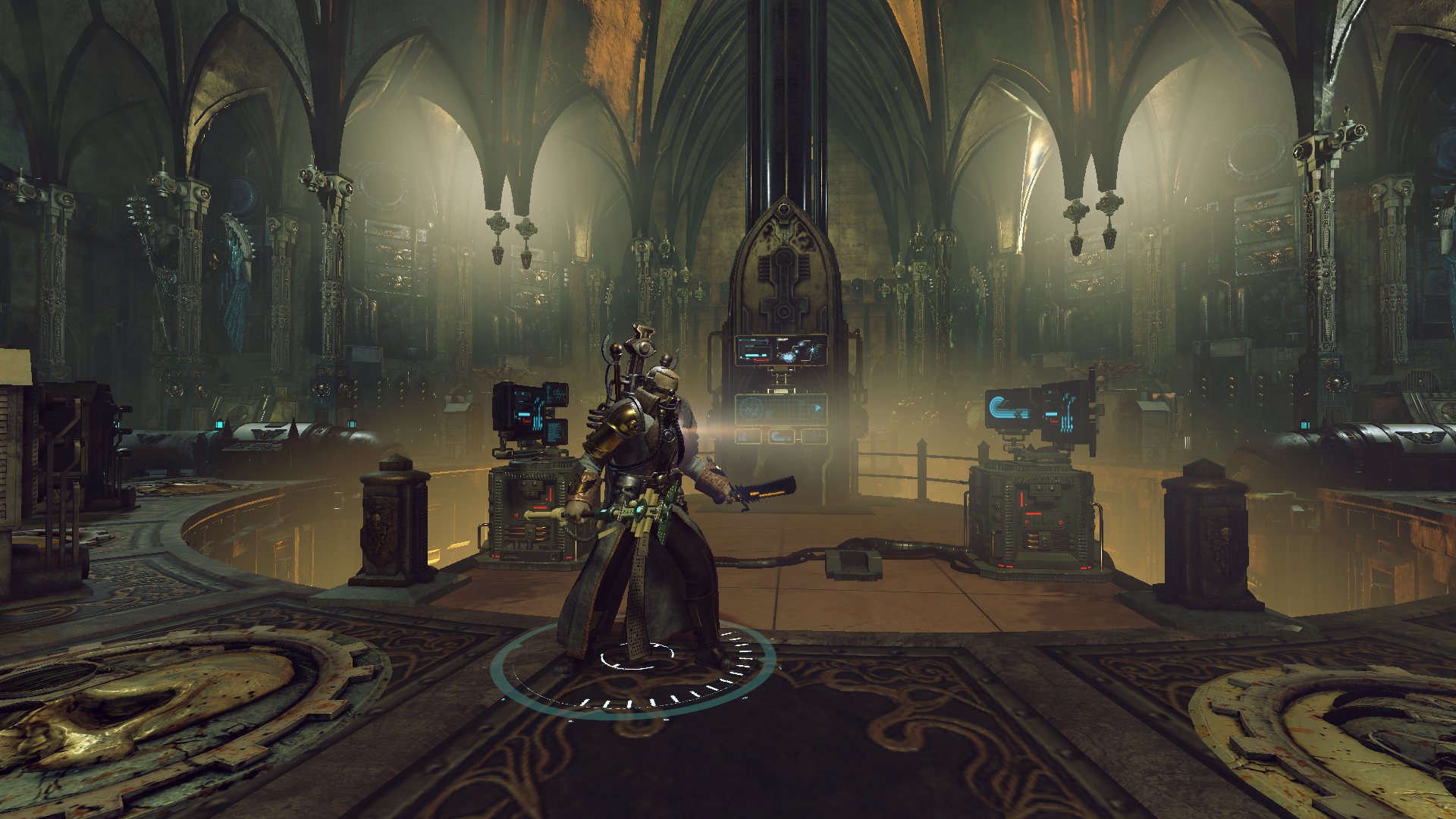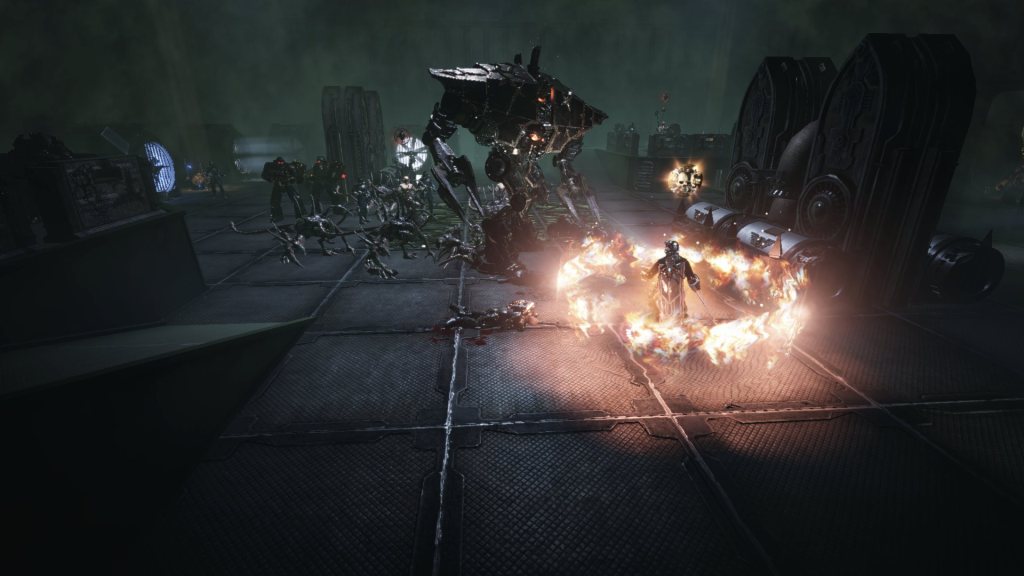
When it comes to Warhammer 40,000 (WH40K), you can barely spit in the Steam store without hitting a game or ten set in this world. A good chunk make it to the console realm, but not as many obtain critical and/or consumer acclaim. The most recent attempt at bringing…
-
Mindless action and fun that can be made more challenging
-
Feels like playing out a case file from an Inquisitor
-
Huge open world (galaxy)
-
Local and online co-op available
-
Plenty of customization options to fit players' play styles
-
Unreliable yet required online connection
-
Long load times
-
Tiny print, even after enlarging it
-
Unhelpful tutorials
-
Last-gen graphics








